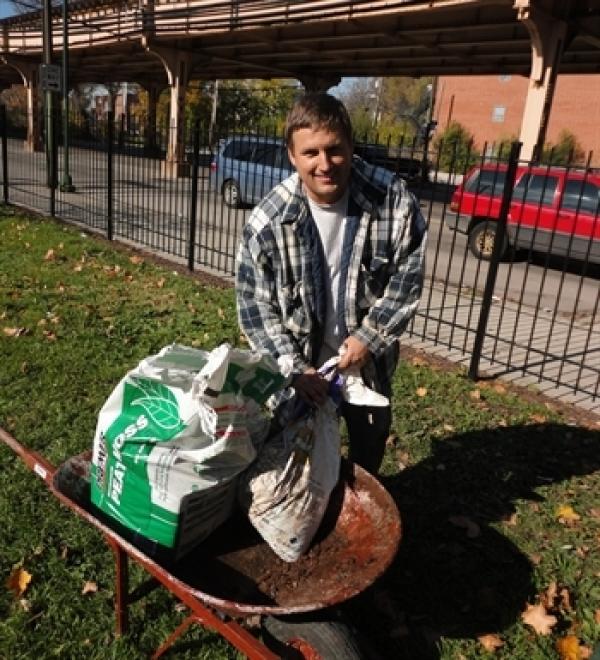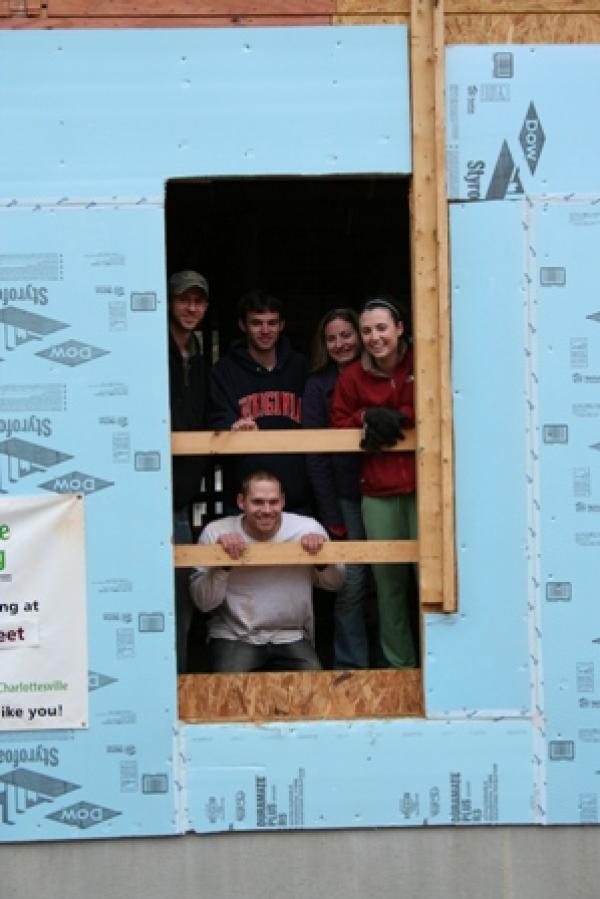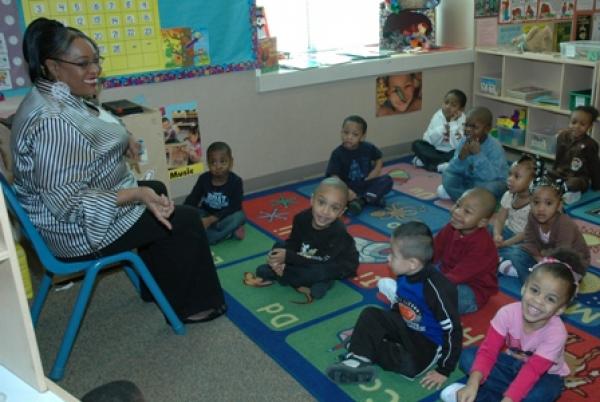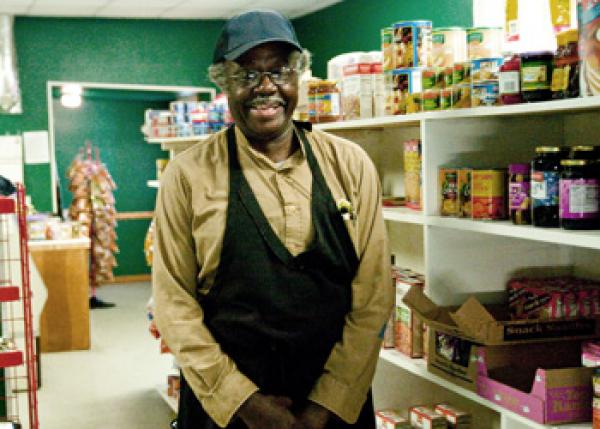Our Stories

For the Shirks’ first nine years living in Chicago, they squeezed their six family members into a 2-bedroom apartment. The Shirks believed homeownership was out of their reach. But thanks to a partnership between community development organization Neighborhood Housings Services of Chicago and First Eagle Bank, their dreams of homeownership came true.
First Eagle Bank is a participant in Neighborhood Housing Service’s Community Banks Initiative, which connects capital and financial support from community banks to Neighborhood Housing Services’ community development projects. Through this partnership, First Eagle Bank and Neighborhood Housing Service worked with the Shirks to secure a grant for first-time homebuyers from the Federal Home Loan Bank.
This grant, combined with a purchase loan made through Neighborhood Housing Service’s lending arm, gave the Shirks the financial resources they needed to afford a home. The house they chose to buy was a vacant, single-family home on Chicago's West Side, featuring a beautiful view of the Garfield Conservatory and Garfield Park.
Since moving into their new house, the Shirks have been proactive in improving their neighborhood. They have led their neighbors and worked with a number of community organizations to transform the vacant lot on the corner of their block, long overgrown with weeds and filled with trash, into a vibrant community garden.
Read more about how First Eagle Bank and Neighborhood Housings Services of Chicago helped the Shirks HERE

Providing affordable housing and most importantly helping low-wealth families become homeowners is Greater Charlottesville Habitat for Humanity’s primary mission.
“This is a very high-cost part of the state. We realized that the traditional Habitat model was not going to work here,” said Executive Director Overton McGehee. “So we’re developing mixed-income communities so that the market-rate and mid-range units will help pay for the affordable units for low-wealth families.”
This Habitat is taking it a step further. They are buying trailer parks threatened by new development. The Charlottesville affiliate is the first Habitat in the country to try such a strategy.
Community Capital Bank of Virginia, also known as Virginia Community Capital, provided a line of credit to help Habitate gain site control and buy a 100- acre Southwood Mobile Home Park in Albemarle County.
“Right now traditional banks are not very interested in making loans secured by undeveloped land,” Overton said. “VCC was willing to do something that other banks were not willing to do.”
Without Habitat, the 361 families currently living in Southwood would be displaced. Instead, these families will continue to live there and receive much higher quality affordable housing. With a projected 600 to 800 units available, many new families will also benefit. The partnership of Greater Charlottesville Habitat for Humanity and Virginia Community Capital gives the Southwood community and Charlottesville hope for a brighter future.
“I hope VCC will help us further on this project over the years and on other projects as well,” Overton said. “I highly recommend them to other non-profits.”

Walk in to the new St. Mark Child Development Center and you’re immediately blown away. Colorful classrooms, a beautiful theater, a dedicated staff and a creative curriculum are ingredients of the center that meet the spiritual, social and survival needs of its central city neighborhood.
Every year St. Mark Child Development Center serves approximately 225 low income families through its early childhood education program, a before and after school program, and a summer camp. Nearly 100% of the children are African American, with many living in single-parent households in one of Kansas City’s poorest neighborhoods. Having access to high-quality, convenient child care empowers St. Mark’s parents to find and retain gainful employment. In addition, the Center serves as a neighborhood anchor, providing a safe, warm and attractive site for a variety of community services.
St. Mark Church built the $4.5 million center with funds raised as well as a loan from Central Bank of Kansas City through its Urban Core Improvement Fund (UCIF). The fund uses deposits from foundations, individuals and companies to make loans to the community which includes social service agencies and businesses that are looking to improve our urban core.
Another bank had turned down the church’s loan request as too risky. But Central Bank, long-time corporate citizen of the Historic Northeast, eagerly said yes. Rebuilding distressed areas in the urban core of Kansas City benefits many and has long been the mission of Central Bank of Kansas City who opened its doors in 1950. “Helping people that are doing great things makes sense for our community as well as the city. Sometimes you have to reach out to help worthwhile causes like St. Mark,” said Bill Dana, president and CEO of the bank.
“Central Bank literally came and guided us every step of the way and has been very supportive,” said the Rev. Sam Mann, Executive Director of St. Mark. “It’s a bank that’s very interested in the community where they live. They are a bank that’s truly committed to that area.”
This morning the preschool children gathered together for Village Voice time in the colorful and creative theater. They are led in song and dance by their teachers and peers. Their smiles and actions show that this is a great place to begin your education. Central Bank of Kansas City is very proud of their involvement with St. Mark and will continue to help other worthy causes through their Urban Core Improvement Fund.

Odis Goodloe opened The Convenience Outlet in Wabbaseka, Arkansas on October 28, 2006. The Convenience Outlet is a small grocery store situated in a rural town of 323 residents. Mr. Goodloe envisioned starting a business that would benefit the community and not require the elderly population to travel to the nearest city to get groceries and supplies. Mr. Goodloe states, “A person can find everything he needs here at The Convenience Outlet.” The store carries items such as bread loaves, sodas, deli meats, dairy products, oil, Windex, and other house hold goods. Mr. Goodloe is a retired military veteran of 22 years and has worked for Wal-Mart for ten years. He stated it was time to do something of his own. He expresses he needs to stay busy. With the assistance of Southern Good Faith Fund’s Business Development Center, Mr. Goodloe was able to obtain a loan to add to his personal investment to start the business.
